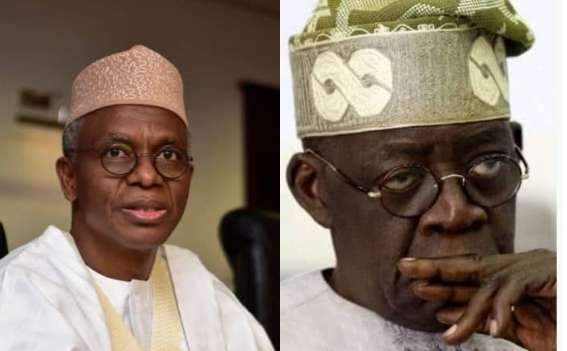
In a recent exchange on Twitter, former Governor of Kaduna State, Nasir El-Rufai, responded to a follower’s concerns about his commitment to the All Progressives Congress (APC). The follower, using the handle @itumasunny2496, expressed surprise at the possibility of El-Rufai leaving a party he was instrumental in founding. El-Rufai’s reply highlighted his adherence to the original ideals and visions of the APC’s founding members, suggesting that the party has deviated from these principles, leaving him “stuck” in those foundational ideals.
This interaction has ignited discussions about the current state of the APC and its alignment with its founding principles. El-Rufai’s assertion implies a significant shift within the party, prompting debates about its ideological trajectory and internal cohesion.
Reactions from the public have been mixed. Some supporters commend El-Rufai for his steadfastness to the party’s original vision. They argue that his commitment shows his dedication to the foundational values that initially attracted many to the APC. These supporters view his stance as a call to realign the party with its core principles, emphasizing the need for introspection and a return to its ideological roots.
Critics also question El-Rufai’s position, suggesting that as a prominent figure within the APC, he shares responsibility for any perceived deviations from the party’s ideals. They argue that internal stakeholders, especially founding members, should work towards reforming the party from within rather than expressing discontent publicly.
Some individuals remain indifferent or skeptical about the significance of this exchange. Some view it as a typical political discourse that may not lead to substantial change, while others believe that such public disagreements could further fragment the party, especially as it navigates complex national issues.
El-Rufai’s concerns are not isolated. In recent times, there have been reports of internal dissent within the APC. Notably, in March 2024, El-Rufai met with the chairman of the Social Democratic Party (SDP) and other party leaders, leading to media speculation about a potential defection ahead of the 2027 general elections. This meeting fueled discussions about the APC’s internal dynamics and the possibility of key figures seeking alternative political platforms.
Furthermore, in October 2024, El-Rufai announced his intention to return to politics in the 2027 general election, stating, “there is no retirement in politics.” This declaration, made during a Hausa-language broadcast on Freedom Radio Nigeria, has been interpreted by some as an indication of his ongoing commitment to political engagement, possibly outside the APC framework.
The APC, formed in 2013 through a merger of opposition parties, was envisioned as a progressive alternative to the then-ruling People’s Democratic Party (PDP). Its founding ideals centered on anti-corruption, economic reform, and national unity. However, over the years, critics have argued that the party has struggled to maintain these principles, leading to internal conflicts and public disillusionment.
El-Rufai’s recent comments and actions highlight the challenges the APC faces in retaining its foundational ideals amidst evolving political dynamics. As the nation approaches the next electoral cycle, the party’s leadership will need to address these internal concerns to present a united and principled front to the electorate.
Leave a Reply